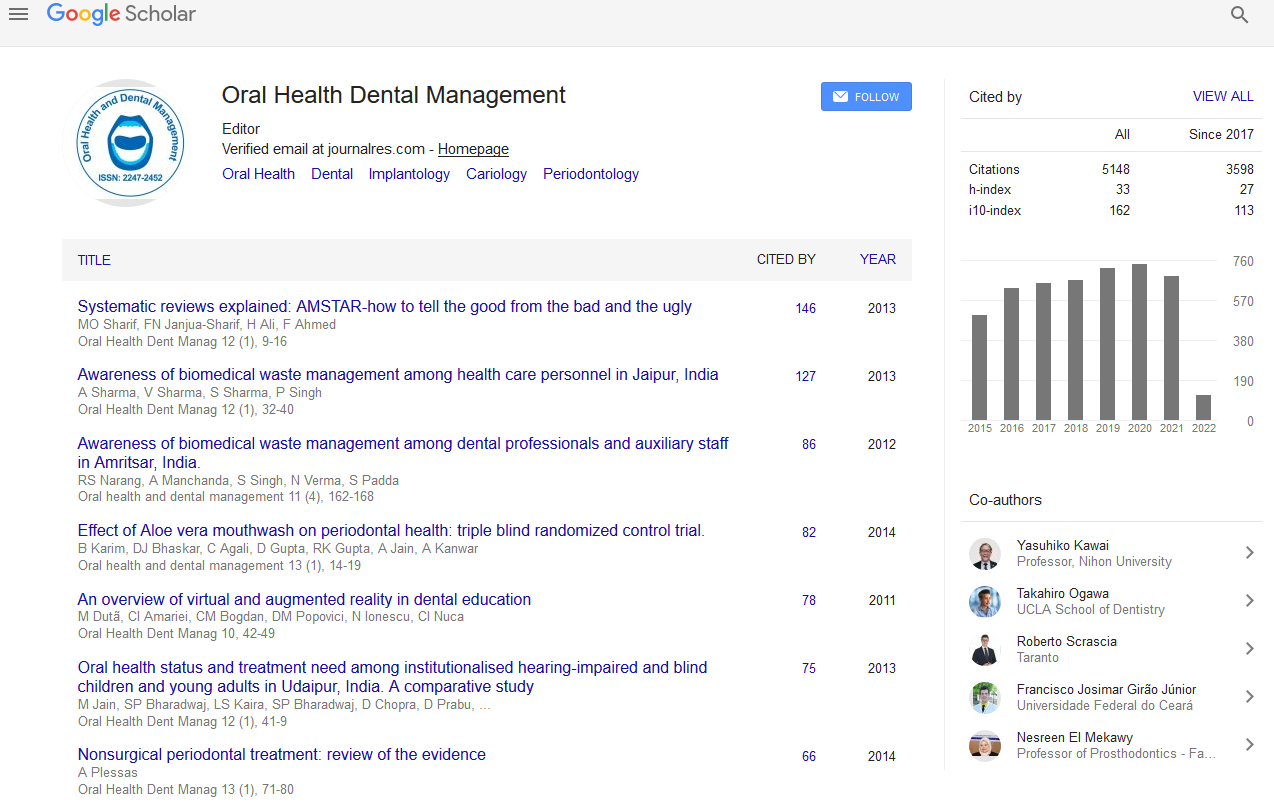Indexed In
- The Global Impact Factor (GIF)
- CiteFactor
- Electronic Journals Library
- RefSeek
- Hamdard University
- EBSCO A-Z
- Virtual Library of Biology (vifabio)
- International committee of medical journals editors (ICMJE)
- Google Scholar
Useful Links
Share This Page
Journal Flyer

Open Access Journals
- Agri and Aquaculture
- Biochemistry
- Bioinformatics & Systems Biology
- Business & Management
- Chemistry
- Clinical Sciences
- Engineering
- Food & Nutrition
- General Science
- Genetics & Molecular Biology
- Immunology & Microbiology
- Medical Sciences
- Neuroscience & Psychology
- Nursing & Health Care
- Pharmaceutical Sciences
Interdisciplinary medicine
8th International Conference and Exhibition on Dentistry & Oral Care
April 18-20, 2016 Dubai, UAE
Khushboo Singh
Maulana Azad Institute of Dental Sciences, India
Posters & Accepted Abstracts: Oral Health Dent Manag
Abstract:
The phenomenal increase in the quantity of medical wastes generated in the hospitals is attributed to the growing use of disposables, as precautions against exposure to infectious diseases and in general, to the increase in medical and public health facilities.This waste is often mixed with municipal solid waste dumped in landfills, where it can contribute to environmental pollution.There are four primary ways to manage hospital waste: landfilling, source reduction, recycling and incineration. Medical waste has been classified into two categories: (i) general waste, which is not potentially dangerous and does not require special handling and disposal and (ii) hazardous waste, which requires special handling, treatment and disposal, usually according to specific regulations and guidelines. The latter may pose potential health, safety or environmental hazards. There are three categories of hazardous waste �?? chemical waste, infectious waste and radioactive waste. Newer technologies have emerged to deal with medical waste in its disposal which has been highlighted upon in the poster.
Biography :
Email: khushbu2424@gmail.com

